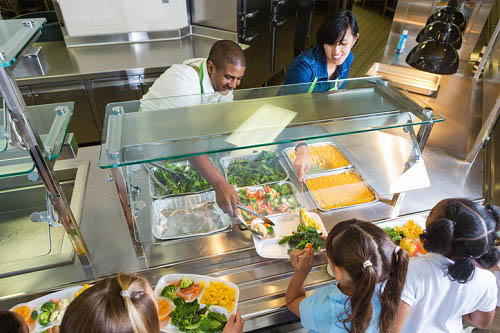
Primary school students are more likely to eat a nutritional breakfast when given 10 extra minutes to do so, according to a new study.
Researchers from Virginia Tech and Georgia Southern University undertook the study – which is the first of its kind to analyse school breakfast programs – to evaluate how students change their breakfast consumption when given extra time.
Klaus Moeltner, a professor of agricultural and applied economics in the Virginia Tech College of Agriculture and Life Sciences, told Science Daily that the study was by far the most sophisticated accurate measurement of school breakfast intake ever done.
“We know exactly how much the students consumed and how much time they had to consume it,” Moeltner said.
The researchers found the number of school breakfasts consumed increased by 20% when students were given 10 extra minutes to eat in the cafeteria, and an additional 35-45% when breakfasts were served inside classrooms.
Moeltner said this brought the overall rate of breakfast consumption close to 100%.
“The percentage of students that go without breakfast because they didn't eat at home and they didn't have time to eat at school goes from four to zero percent when given 10 minutes more to eat, so the most vulnerable segment is taken care of,” he said.
And while the results suggest that more students eat breakfast when it is served inside classrooms, the researchers acknowledge the extra costs associated with in-classroom breakfasts.
“When you move breakfast into the classroom, you have to serve all the students for free, and the associated costs needed to feed all the students must be covered by low income subsidies,” he said.
However, Moeltner pointed out that many schools don't have a large enough proportion of subsidized students and therefore cannot afford to serve in-classroom breakfasts because they lack the subsidies to offset the costs.
Thus, the findings have significant implications for schools that cannot afford classroom breakfasts, but could allow more time for cafeteria breakfasts.


